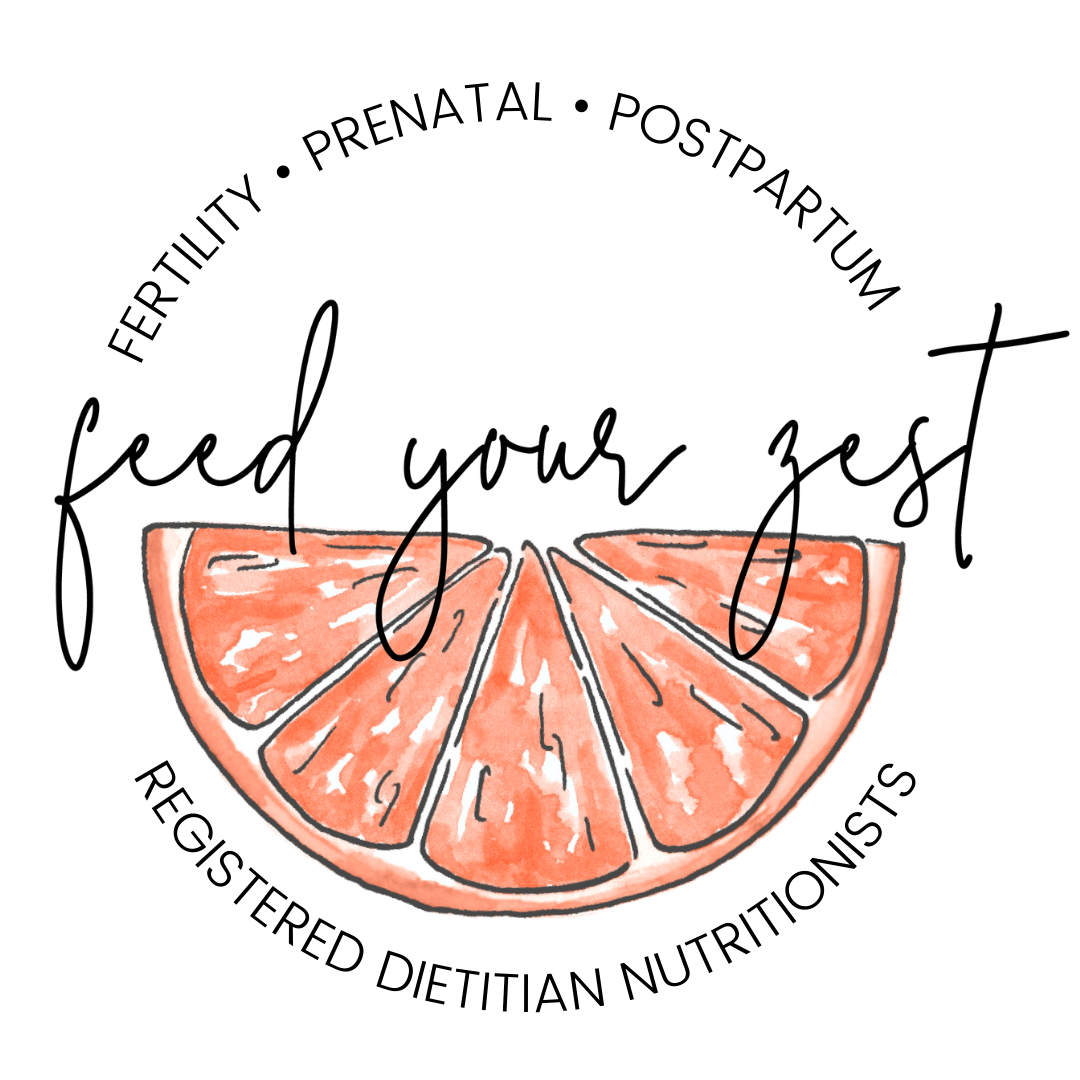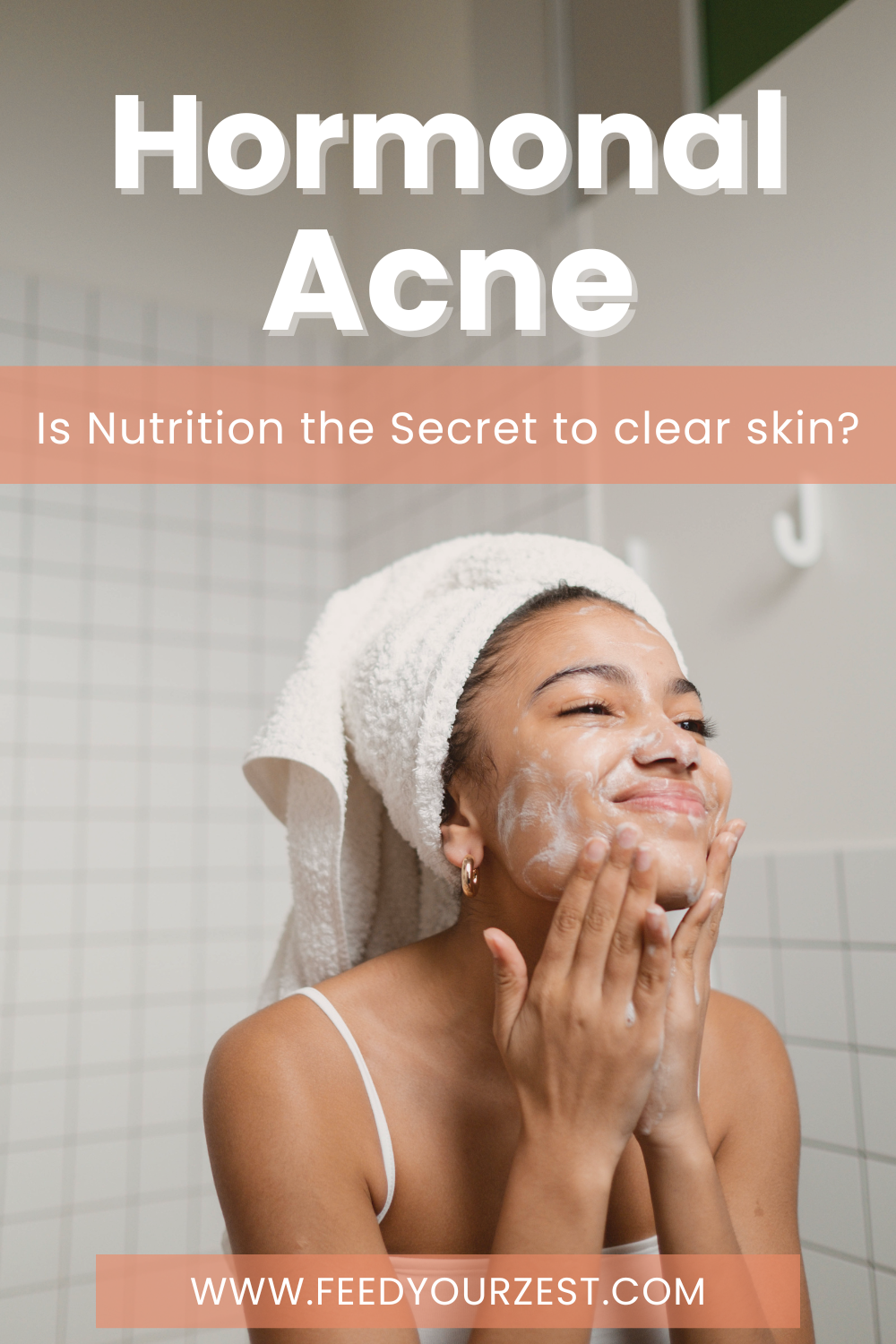Adult Hormonal Acne: Is Nutrition the Secret to Clear Skin?
by Tangela Kindell, MS, dietetic intern
Did you know that it’s common for hormonal acne to continue or even occur for the first time for adults? This is especially true for our patients with PCOS.
Whether it’s consistent, severe acne or that routine pimple that pops up every month during your period, adult acne can be a pain! Popular acne treatments like cleansers, masks, creams, and medications may help but, for many, the secret to clear skin is more than skin deep.
If you’ve tried everything and still struggle with persistent hormonal acne, nutrition may be the key to clear, healthy skin from the inside out.
First, let’s talk about the three biggest culprits of adult acne: inflammation, insulin resistance, and hormonal imbalance.
What does inflammation have to do with acne?
Pores clogged with excess oil, dirt, dead skin cells, and bacteria trigger the body’s natural defense, the immune system, to react. In many cases, the immune system can act so quickly that bacteria is killed and pores are cleared before a blemish ever forms.
In cases where the pore stays clogged and bacteria grows, your body ramps up the immune response, leading to irritated, red, swollen, and often painful acne on the surface (pimples) or deep within the skin (nodules and cysts).
Though inflammation is the body’s natural response to injury and infection in the skin, long-term (chronic) inflammation triggered by stress, poor sleep, hormonal imbalance, and other factors can cause excessive oil production and an overactive immune system, making acne worse.
What’s the Deal with Insulin Resistance and Acne?
Insulin is a hormone that helps your body use sugar from food for energy. Insulin resistance occurs when cells “resist” or stop responding well to insulin. Though caused by many factors, hormonal imbalance caused by pregnancy, menopause, changes during the menstrual cycle, birth control, and certain health conditions like PCOS can lead to insulin resistance.
Insulin resistance causes the body to pump out high volumes of insulin to support the body in using the glucose it needs. A side effect of consistently high insulin is increased oil production in the skin. More oil = more clogged pores, add bacteria and this = acne.
Want support in balancing your blood sugar to improve insulin resistance? Check out our Insulin Resistance Mini Course here.
How are Hormones Connected to Acne?
Hormones are a class of natural chemical “messengers” in the blood that control important functions like growth, metabolism, and reproduction. Research shows that too much of a group of reproductive hormones called androgens are associated with inflammation, poor insulin response, excessive oil production, and an overall increase in deep cystic acne on the chin, jawline, and neck. Though many factors can cause increased androgens, PCOS is the most common cause among women.
So, in short, inflammation, insulin resistance, and hormones can all work together to increase or worsen existing acne. Hormonal imbalance can lead to insulin resistance and trigger inflammation in the body, increasing your skin's oil production and making the skin more sensitive to irritation, which leads to breakouts.
What Can I Eat to Reduce or Prevent Hormonal Acne?
A balanced diet rich in fruits, vegetables, lean protein, whole grains, and healthy fats can address the hormonal imbalance, insulin resistance, and inflammation that work together to cause acne.
Omega-3 Fats: Walnuts, flax seeds, chia seeds and fatty fish like sardines and salmon contain omega-3 fatty acids that can reduce inflammation and support overall skin health.
Colorful Fruits and Vegetables: Deeply colored produce like berries, cherries, spinach, kale, and melon are rich in antioxidants and vitamin C that can support proper immune function. Yellow/orange fruits and vegetables like sweet potatoes, carrots, and pineapple contain beta-carotene, an antioxidant known to reduce inflammation and improve skin.
Probiotic-Packed Foods: Fermented foods like kimchi, pickles, miso, and yogurt (with live and active cultures) contain healthy bacteria that support a healthy gut and balanced hormones.
Zinc-Rich Proteins: Lean sources of protein like oysters, beef, pumpkin seeds, chickpeas, and quinoa contain zinc, which is known to balance oil and hormones, reduce inflammation, and support skin healing to reduce and prevent acne.
Fiber-Rich Foods: Fruits, vegetables, legumes, nuts, seeds, and whole grains like brown rice, quinoa, oats, and popcorn are full of fiber to prevent blood sugar spikes and maintain normal insulin levels.
Acne is a complex skin condition caused by a combination of factors. Each person’s body is different, meaning that the treatment that works will be unique to you. For personalized guidance and support, apply for 1:1 nutrition coaching with a Feed Your Zest dietitian here.

